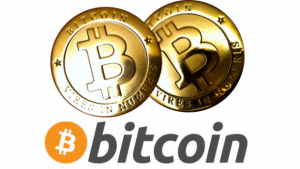Department of Justice Scores Big in Dark Web Fraud Case
When someone defrauds a Dark Web platform used to buy and sell illegal goods, is he a hero or a villain?
According to the Department of Justice, such a thing is just villainous enough to justify making one of the biggest seizures of illicitly gained bitcoin ever. On November 9, 2021, it found 50,676 bitcoin, then worth $3.36 billion, hidden on devices hidden in James Zhong’s home.
Zhong pled guilty to one charge of wire fraud related to his activity on the Dark Web platform Silk Road in 2012. In a funny twist in the Silk Road saga, he had set up multiple accounts with the intention of defrauding Silk Road. The scheme included executing 140 rapid-fire transactions to trick the Silk Road system into giving him more than 50,000 bitcoin. Once he had the bitcoin, the accounts ceased activity.
The Department of Justice noted that, since 2012, Bitcoin’s code was forked to create alternative digital assets like Bitcoin Cash and Bitcoin Gold. Bitcoin SV and eCash then split off from eCash. By swapping the Bitcoin Cash that Zhong would have gotten from the fork, he could increase his holdings to 53,000 bitcoin. The Department of Justice referred to them as the “Crime Proceeds” in the news release announcing the guilty plea.
With the guilty plea, the Department of Justice can initiate forfeiture proceedings of Zhong’s assets, including the seized digital assets, Zhong’s 80% stake in the real estate investment firm RE&D Investments, LLC, and gold and silver bars seized from Zhong’s home.
Ever think you’d hear the name of Ross Ulbricht again?
The Department of Justice also filed an Amended Preliminary Order of Forfeiture seeking to forfeit any claim that Silk Road has on the bitcoin. The Amended Preliminary Order of Forfeiture was filed under the United States v. Ross Ulbricht case.
Ross Ulbricht, who went by the alias of “Dread Pirate Roberts,” was the founder of Silk Road. He is currently serving a double life plus forty years sentence in prison for his role in founding and operating the Dark Web marketplace.
In prison, Ulbricht can only communicate with the outside world through intermediaries. His Tweets are messages that he passes to family members during their visits. He can also send articles to post on his blog through third parties. His speech to the 2021 Bitcoin Conference in the below video was a recorded phone call.
Prison life is rough, but not all injuries are due to violence in prison. Just see the below tweet:
His supporters are continuing their efforts to have him pardoned or his sentence commuted, calling it overly harsh for operating a Dark Web marketplace. They say his case was tainted by corrupt federal officials who have since been convicted of charges in separate cases.
By way of comparison, conviction on a single charge of wire fraud carries a maximum sentence of 20 years. Zhong will likely get far less than that, possibly as part of a plea deal. The creators of the Change.org petition also cite the many instances in which those convicted of worse offenses – even serious violent crimes – received far less lengthy prison sentences or even probation, eventually regaining the ability to continue their lives as free citizens even when their victims could not.
Two presidents have started their terms in the White House and refused to touch any possibility of pardoning Ross Ulbricht. The idea that someone defrauded Ross Ulbricht and his Dark Web marketplace could be seen as a funny twist, though.







